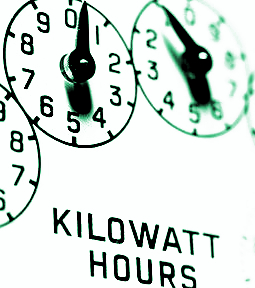NEG limping ahead
 The Coalition has managed to reach basic internal consensus on a Nation Energy Guarantee (NEG) after negotiating with its staunchly pro-coal stalwarts.
The Coalition has managed to reach basic internal consensus on a Nation Energy Guarantee (NEG) after negotiating with its staunchly pro-coal stalwarts.
The Coalition party room has signed off on the NEG policy, but conservatives Tony Abbott, Andrew Hastie, Eric Abetz, Craig Kelly, and George Christensen say they might cross the floor in an attempt to kill the policy when the proposal comes to parliament.
Experts say it is good to see progress on the deep impasse in the alignment of climate and energy policy.
Dr Ian Lowe - former President of the Australian Conservation Foundation – says the NEG has some serious deficiencies.
“It emphasises security of supply, one of the three objectives that should be achieved by an electricity policy,” he said.
“Its claim to reduce prices is less soundly based, and the assurance that the average household power bill will come down by $550 a year is just not credible.
“The NEG’s most serious deficiency is its failure to meet even our legal requirements under the Paris agreement to slow climate change.
“Since the government has no plan at all to reduce our greenhouse gas emissions from transport, agriculture or manufacturing, the lion’s share of our agreed reductions must come from electricity generation. The NEG’s target is totally inadequate.
“Modelling suggests that the current wave of investment in large-scale renewable energy generation will be stalled if the NEG is approved in its present form.”
While the current form of the NEG is considered weak by environmentalists; “The nation can’t afford it to be derailed,” according to Professor Ken Baldwin, director of the Energy Change Institute at ANU.
The NEG plans now “needs to walk the COAG political minefield without being compromised as an effective decarbonisation measure,” he said.
“In this process the perfect should not become the enemy of the good.
“The mechanism itself first needs to be de-coupled from the ambition i.e. the politically-charged emissions reduction target needs to be set not in legislation, but by regulation so that it can easily be used as a knob to tune the level of ambition.
“Second, the states need to be able to set their own targets, but they need to agree to comply with the minimum 26 per cent target to avoid free-riding on the back of higher targets set by other states.
“There is a renewable energy train coming down the tracks, which will ride right over the top of this dithering on climate and energy policy if we don’t act now.
“The NEG can help guide and even accelerate the train towards our climate goal, and future policies such as an economy-wide carbon pricing mechanism can be laid right over the top of it,” Prof Baldwin said.







 Print
Print